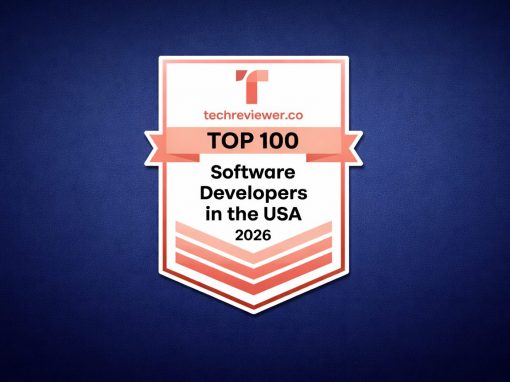Table of Contents
Decentralized exchanges, NFTs, Stablecoins, ERC-20 – the Blockchain Metaverse craze is here for a good reason.
When you merge the security and efficiency of decentralized blockchain solutions, combine it with the economic benefit provided by NFTs, and season this mix with the immersive nature of VR – you’ve got yourself a recipe for the next breakthrough technology.
The crypto metaverse is the future of the internet. Most people call this revolution “Web 3.0” or the “internet of the future”. The crypto-powered web will become a three-dimensional digital universe where people will be able to interact with each other seamlessly. You can buy virtual land, interact with the other metaverse users, and trade non-fungible assets for real money – the possibilities are endless. With billions of investments coming from the industry’s behemoths, like Facebook, Microsoft, Epic and Apple, we are almost convinced that the blockchain metaverse is the future of the internet. If only not for a few heart-breaking shortcomings of the industry in its infancy… So, what exactly is the crypto metaverse, and what can we expect from it in the future?
What is Blockchain Metaverse? Web 3.0, Facebook and the Blockchain Craze
Crypto metaverse is a virtual world consisting of interoperable cyberspaces, where users can socialize and transact using AR and VR technologies, NFTs and blockchain-based games.
Meta – beyond. Verse – universe. Metaverse is an immersive social experience where different virtual games, apps and spaces are interconnected. Users can trade non-fungible assets, play games, explore worlds, own properties, and travel in this space. Being in Metaverse means living a digital life.
While Metaverse is still in its infancy, we can already see a substantial commitment from the biggest technology leaders, who are interested in bringing blockchain metaverse to reality:
- Facebook purchased Oculus for $2 billion and later rebranded their company into Meta to show the full commitment of the company to the metaverse development, heralding the way for other metaverse companies
- Epic announced a $2 billion funding round to cement their meta development efforts
- Microsoft purchased Activision-Blizzard to secure meta game and software development efforts
Why are all these giants going all-in on the Metaverse? They all want to be at the forefront of the upcoming internet revolution (a.k.a. Web 3.0), and owning a big share of the metaverse will help them get a competitive advantage. To better understand the future of this technology, let’s refresh our memory on what Web 1.0 and Web 2.0 are:
Web 1.0 was the infant version of the internet with simple storefront web pages between the 80s and 90s. Back then, people employed web developers to provide business information and facilitate simple transactions. People rarely used the internet to socialize at that point. It was a “view-transact” era of the internet.
Web 2.0 is the “socialize-learn-create-transact” internet of today. During the Web 2.0 revolution, it became essential for every business to exist in the digital space in some form. It took about 10 years to fully-implement Web 2.0 between the late 90s and 00s, and during that period, all the social networks, web services and modern fintech applications emerged.
Web 3.0 is the “own-exchange-coexist” future of the internet that recently started coming to life with the advent of AR/VR and blockchain technologies. Web 3.0 is an interconnected web of virtual digital spaces, where users would be able to interact with each other virtually and exchange digital assets easily. It will take at least another 5-10 years for Web 3.0 to take off.
So, what exactly does blockchain have to do with the Metaverse?
Blockchain Technologies – At the Heart of the Metaverse Revolution
In the context of the Web 3.0 revolution, blockchain solutions power both the exchange of goods/products/services on the metaverse platform and the creation of the goods themselves. Think of the blockchain technologies as the “brains” of the metaverse ecosystem:
- Users will employ the power of cryptocurrency exchange development to facilitate their transactions in the Metaverse on a peer to peer basis.
- Blockchain-powered fintech solutions will provide unmatched security, anonymity and efficiency compared to the traditional banking system.
- NFTs would be used to develop digital assets for the Metaverse (could be anything – virtual cars, buying virtual land with crypto, buying virtual buildings, art), and then these NFTs could be traded for profit in Metaverse.
- The developers would be able to create and interconnect the digital spaces of the Metaverse in the future using the technologies powering modern blockchain networks.
- You can develop entire games on blockchain, which will help to popularize the Metaverse.
The Metaverse was created with the idea to provide unmatched data security, interoperability and inclusivity in society, turning the internet into a large social experience. It would also help further “monetize” the internet, creating a separate digitized economy powered by NFTs.
NFTs & Crypto – The Economic Powerhouse of the Blockchain Metaverse
NFTs are non-fungible virtual assets which allow users to verify their ownership over digital assets, earn commission on the commercial usage of that asset by other users, and make money from the sale of that asset down the line if it appreciates.
In the context of the Metaverse, NFT protocols will be used to create every conceivable asset in the Metaverse. Essentially, users will be able to use cryptocurrencies from their digital wallets on auctions and seamlessly exchange any digital asset. This would also give rise to the blockchain-based metaverse startups focused on NFT & game development, creating more jobs in the real world. The NFTs and blockchain solutions will be here to power the metaverse revolution. But like with any other emerging technology, you should take Metaverse with a grain of salt.
n the context of the Metaverse, NFT protocols will be used to create every conceivable asset in the Metaverse. Essentially, users will be able to use cryptocurrencies from their digital wallets on auctions and seamlessly exchange any digital asset. This would also give rise to the blockchain-based metaverse startups focused on NFT & game development, creating more jobs in the real world. The NFTs and blockchain solutions will be here to power the metaverse revolution.
For those looking to actively participate in the Metaverse economy, a practical guide on buying Ethereum is essential, as it is one of the primary currencies used for transactions within this digital realm. This foundational knowledge will enable users to navigate the Metaverse’s economic landscape with confidence and ease. But like with any other emerging technology, you should take Metaverse with a grain of salt.
Metaverse Concerns: A Tough Pill to Swallow
There are already tens of immersive apps where you can explore virtual worlds, like Horizon Worlds or AltSpaceVR. However, it’s important to understand that the blockchain multiverse is still underdeveloped in its infancy. And like any other emerging technology, Metaverse is not without its underwater stones:
VR Technology is not Popular
When Oculus released the Quest 2 in 2019, it became the first affordable (and powerful enough) commercially-produced standalone VR headset. The Quest made VR available to an average user, but meta has only sold about 2 million units so far – that’s hardly enough units to start a metaverse revolution. And with the ongoing chip shortage, the future of the VR and metaverse popularization is still under question.
Decentralized User Interactions: Grounds for Virtual Harassment
You cannot easily regulate the interactions between your users on the platform without invading their privacy. Considering that the basis of the Metaverse is complete freedom, there’s also a possibility of digital harassment or cyberbullying on the platform.
The Promised Interoperability of the Platform is a Distant Dream
In reality, current metaverse solutions are struggling to ensure cross-protocol interoperability. For instance, if your Metaverse application runs on Ethereum, it won’t be easy to ensure its assets’ compatibility with another world written on Solana. Additionally, transferring the same NFT asset across different games, planets, and applications is hard.
Tech Giants Dominate the Industry
One of the key ingredients of the Metaverse is the presumed anonymity and decentralization of interactions between its users. When we move closer to the Metaverse, we should also move towards complete data privacy. Since currently the industry is dominated by data-hungry big companies, there is certainly much concern regarding the data privacy on the network.
These are just a few of our concerns regarding the future Metaverse development efforts, but is it still worth the risk?
The Future of the Blockchain Metaverse is Still Foggy
There is no one way to tell if the Metaverse will develop into what it promises to be, as the entire technology is complex. For the successful creation of a popular and inhabitable multiverse, quite a few things need to align first:
- VR/AR technologies need to be popularized on a global scale
- Smart contracts powering the major blockchain networks need to be united to ensure interoperability
- The users need to fully embrace the concept of cryptocurrencies and decentralized exchanges on a global scale
- Society will need to get educated on blockchain technologies before they get on board with the Metaverse
Certainly, the successful development of future Blockchain technologies will be the deciding factor in the Metaverse development. And with the growing investment into the industry and popularization of VR and Blockchain, we can expect substantial growth in the sector within the next 10 years. Only the time will show what comes of the Metaverse in the end.
If you want to continue a conversation with an experienced blockchain software development solutions company. – feel free to chat with us any time.







